- Home
- Bryce Courtenay
Sylvia Page 21
Sylvia Read online
Page 21
Reinhardt frequently announced that I was lucky and that by remaining with me he shared in my luck. Now he too was in a dilemma. He had found a lute player, Jacques, a Frenchman of exceeding skill and great beauty, and was much in love. But the lute player wished to return home and the ratcatcher was most distraught.
‘But if he loves you, why would he wish to return home?’ I asked.
‘He is contracted to the noble Count St Gilles as musician and if he does not return his reputation will be destroyed in France. He begs me to go with him and swears his love for me is the equal of my own for him and that they will equally applaud me for my flute in France,’ Reinhardt lamented.
The thought of losing my beloved ratcatcher, rapscallion though he might be and foppish, deceitful, boastful and often blasphemous, but always cheerful and clever and concerned for my wellbeing, was too awful to contemplate. But it must be admitted that my work with Father Hermann and Nicholas among the poor every morning and my study each afternoon meant that I only saw him when at night he played and I sang.
‘I pray for your redemption every day, Reinhardt, but if you love Jacques with all thy heart then you must go to France with him, though I shall miss you more than I can possibly say.’
‘Sylvia, you are my talisman, since meeting you beside the brook my life has been most fortunate. All my life I have wanted to be a musician but lacked the courage. As a ratcatcher my vocation fed and clothed me well enough and I never wanted for anything. If I say so myself, I was amongst the best of my kind, possibly the best, for I have never met another who with his pipe can call so many rats to their doom. To be the best at something is better than being only among those who do something well enough. I was most afraid that as a musician I would only amuse others, a wandering minstrel of no great importance or respect. Since we have worked together I now know myself elevated to be among the best with my instrument in Germany. It is you I must thank for this.’
‘Nay, thank Frau Sarah!’ I protested. ‘It was she who has given us both the opportunity.’
‘Aye, but you, Sylvia Honeyeater, supplied the inspiration.’
And so now, aged almost fourteen, I was once again at a crossroads in my life. I had performed often enough to know that I did not depend on Reinhardt, even though we fitted hand in glove and no other musician would suit as well. Frau Sarah would not like his departure, because between us we had made her a pretty penny and still commanded a greater fee than any other musicians or entertainers under her management. But she would not be destitute without him or, for that matter, myself, and she would know we had served her well and with loyalty. Several Christian folk, seeing the success of the Jewess, had attempted to do the same thing and in the process attracted four of Frau Sarah’s entertainers. But all the rest stayed and the four who had left were for the most part malcontents or thought their talents greater than she saw them to be. Her judgement was seldom wrong and her business would continue to prosper.
So with Father Hermann almost daily exhorting me to become a novice nun, and Master Israel, my beloved teacher, unable to take my Latin studies any further, and with Reinhardt likely to depart with his French lover, I found myself confused and undecided. It was then that I was summoned to see Father Paulus at St Martin’s church.
I had seen him from time to time since the inquiry into the blood on the rose. But he was by nature withdrawn, and had quickly seen that Father Hermann saw me as his protégé, and had stayed away so we had not cultivated a deep friendship, remaining all the while most cordial towards each other. He would sometimes ask if I would sing at St Martin’s, once or twice over Lent or on a holy feast day. If I appear to be familiar with them, or speak as if I now saw myself on equal terms with the two priests, this would not be true. I was ever the sprat and they the big fish in the sea.
Upon my arrival at St Martin’s Father Paulus led me into the baptistry and when we were seated he took my hand and looked most sincerely into my eyes. ‘Sylvia, the blessed Father Hermann Joseph has asked me to talk with you about entering a convent.’ I dropped my eyes and he must have seen that I seemed immediately disconsolate. ‘Nay, please look at me, child. What I have to say is, I think, important.’
‘Yes, Father,’ I said meekly, looking into his pale blue eyes, their whites reddened from working late under candlelight.
‘Sylvia, you know that we, Father Hermann and myself, think you are divinely blessed, and so it is not unexpected that he should want you to devote your life to the work of our Saviour.
There is, after all, no greater calling.’
‘But, Father . . .’ I began to protest.
‘No, pray hear me out, my child. What I have to say may yet surprise you. I have also had a visit from the Jew, Israel of Bonn.’
‘Master Israel! He came to visit you?’ I exclaimed, surprised.
‘Aye, in a matter concerning you.’
‘But he is a Jew! As a priest do you not think him Satan’s child?’
Father Paulus laughed. ‘I am a scribe and a scholar and do not always agree with every doctrinal veritas of the Holy Roman Church. Master Israel, as you call him, is a good man and God looks first into a man’s heart before he passes judgement on his faith.’
‘And what of the infidel?’ I asked, knowing I should not be arguing, but it was Master Israel himself who taught me that good argument is the pathway to truth and in discussion lies the seeds of the resolution to most human problems.
‘It is the same with the infidel, Jew, Gentile, Muslim – we share the one God. Christians do not always behave well and there are both Jews and infidels who have shown us charity in the past when we Christians have shown them none. “Judge not lest thee be judged,” saith the Lord.’ He smiled. ‘We talked about chess.’
‘Chess?’
‘Aye, he claims you are very good.’
I blushed furiously. ‘Nay, Father, I know only what he has taught me.’
‘Chess is an easy game to teach and a very difficult one to play. The teacher, while important if he is a master, is only one part; the quality of mind and the courage of the heart are the others.’
‘Do you play chess, Father?’
‘Since I was a child. I should like to play you, Sylvia.’ He rose and walked over to a curtained partition and parting the curtains withdrew a chessboard already set up and placed it on the bench between us.
‘Now? You wish us to play now?’ I asked, surprised.
‘Aye, there is much resting on this contest,’ he warned with a smile.
By warning me that more than the game rested on the result, he had already made his first move and I mine, for I recognised this ploy to divide my concentration, thinking I must win as failure would not be to my advantage. Thank you, Master Israel, I said silently.
I would like to say I lost and then returned another day to win, or even that we reached a stalemate as it would make for a better telling. But hallelujah! I trounced him within the hour. Male, vanity is thy name. He had thought himself against a peasant girl but did not realise that I had been well tutored by a Jew. They are a people who are taught in their cradle to read a Gentile’s mind and to use their brains to ward off the blows of those who would do harm to them.
Father Paulus was wrong. It is not only the quality of mind and the courage of the heart that is required in playing chess – understanding the innermost nature of your opponent is the essential difference. Master Israel had taught me to watch every mannerism, the eyes, hands, gestures, movements, sweat, rapidity of blinking and breathing, then, if possible to touch, seemingly by accident, an opponent’s skin and read its temperature. Chess is always won narrowly by one of two equally competent players. But it is not always the grand and bold advance or the superior intelligence, but often the smallest observation that accounts for the winning move. That is why it is more than the game of life. It is also the answer to the question, ‘How must a Jew play chess with a Gentile?’ If the Jew wins then the Gentile will know that the Jew understan
ds his nature, both his weaknesses and his strengths, and will use both well when they do business together.
Father Paulus remained silent for fully a minute as he examined the chessboard, then he shook his head. ‘My arrogance has brought me undone, I must pray for humility.’ He looked up. ‘I confess you continue to surprise me, my child.’ Then, suddenly brusque, he said, ‘Chess was not why Israel of Bonn came to see me. He asked if I could make the church library available to you. He admitted that he could no longer teach you as you have reached the extent of his own knowledge of Latin text and he lacks books and manuscript. It was both a brave and worthy thing for him to do as it is not easy for a Jew to ask such a favour from a priest. He must have a great regard for you, Sylvia.’
‘Thank you, Father, for telling me this. I too have a great love for him.’
Father Paulus cleared his throat. ‘I would caution you to be careful to talk about a Jew in this familiar way. With myself it matters little, but others may not view it the same.’ He glanced down at the chessboard and shook his head ruefully, then without looking up from the board he said somewhat shyly, ‘I agree with Israel of Bonn – you are sufficiently intelligent and worthy to learn more of Latin.’ He looked up at me. ‘I have decided I shall be your tutor.’
He must have seen my expression of delight because I could see from the shine to his pale eyes that he was pleased. ‘Thank you, Father, I shall not let you down and pray only that I may please you.’
‘I am told that your language is already well advanced, but that you lack skill with a quill and with the nature of the alphabet and the art of spelling. We will work assiduously on these.’
‘Thank you, Father,’ I replied again. I should have liked to kiss him if he hadn’t been a priest.
‘Do not thank me so quickly, my child. There is a condition.’
My heart stood still. Frau Sarah had been through the various conditions males impose on the prettier of the opposite sex and I had heard of errant priests who break their vow of chastity. Please, God, let it not be that, I prayed silently.
‘After a few months at the age of fourteen you must enter a convent as a novice in order to undertake religious orders. Father Hermann and I both agree that God has a special calling for you, Sylvia.’
I felt at once ashamed that I might think of Father Paulus as I had just done. It was a sin to think evil in anticipation. I would ask God for forgiveness. Then I realised that the blessed Father Hermann Joseph with his constant nagging that I enter a convent had won with this new promise of Latin instruction. Father Paulus, it was now obvious, had consulted with him after Master Israel’s visit and he, as the senior cleric, had placed this condition on my opportunity of further learning.
I needed now to decide if the terms were acceptable, although I knew immediately in my heart that to be able to search out the word of God myself from Latin text was priceless and that I would accept. But I could hear Master Israel’s words as if he was standing at my side. ‘Never accept the first price, there is always a little more to be gained. If not, you have lost nothing.’
‘But what of my Latin, Father? After but a few months there will still be a great deal to learn and I cannot continue my study as a novice in a nunnery where they will regard me as a peasant and set me to work in the kitchen and the vegetable garden.’
‘Humility, my child. To work in a kitchen and a garden is also God’s work,’ he chided.
‘Then I have been doing God’s work since I was seven years old and mark Him pleased with me, for He has given me the gift of learning and placed it in thy hands, Father.’
Father Paulus laughed. ‘I begin to see why I lost to you at chess, my child. We will find a convent where the facilities exist and the abbess agrees that you may learn further in order that you become a scribe.’
‘And only perform the duties of a scribe and not a peasant?’ I pushed him.
‘Sylvia, what is this about a peasant? Can you not see, you are far from this humble station in life, even though to be born of humble lineage is no disgrace. Your manners are courtly. You have the appearance and the voice of an angel. I am told you speak Hebrew and the dreadful patois of the German Jew, Yiddish. That this year, under the Jew’s tutelage, you undertake to learn Greek and Aramaic and if you learn them as well as you did Hebrew then you will be quadlingual without counting your native tongue. Father Hermann and I have with our own eyes seen you perform two miracles, the one of the birds and the other of the Virgin’s rose. There is also talk of others we have not witnessed. Do you think that an abbess, accepting you into her convent, would want to use thee for a scullery maid to stir the soup or pull turnips from the garden?’
‘Will you tell Mother Superior all this, please, Father? Discounting the miracles, for I do not claim them.’
‘Yes, willingly,’ he said, a little impatiently. ‘I do not think it will be necessary – whether you disagree we all know of the blood on the rose, the birds and of thy miraculous appearance in the bathhouse as an angel to castigate the three harlots for their sins.’
‘What!’ I cried, astonished. ‘Nay, Father, I went there to take a bath! You may ask the attendant! Her name is Gilda. She saw me well.’
‘Aye, we have interviewed her and the three sinful women who have repented and vow to henceforth live chaste lives. Gilda of the Bathhouse says she heard them screaming and then saw them run naked from the bathhouse. When she entered she saw an angel naked with the sign of the fish on her back. She swears she had never set eyes upon you before that moment and that no person may enter the bathhouse without her knowing or paying the bath fee.’
‘They are not being truthful, Father. Gilda, perhaps to protect me, for she proved a goodly woman and took good care of me when the three whores . . . er, women, threatened me. As for them, I know not why they would want to tell such a confounding and preposterous tale.’
Father Paulus seemed unimpressed with my explanation. ‘Sylvia, the woman Gilda claims she gave you a petticoat to cover your nakedness and to hide the holy sign of the fish upon your back.’ He paused for breath and looked at me steadily. ‘The bathhouse woman’s veracity is soon determined. Sylvia, is there the fish sign of the apostles on your back?
‘It is a birthmark, Father.’
‘Do you know that it is a mark of our Saviour and His apostles?’
‘Father, I beg you, it is but a mark I was born with, the shape is happenstance.’
There was a silence now between us, then Father Paulus looked up at me, his washed-out blue eyes appealing and sincere. ‘Sylvia, I do not wish you to take this in the wrong manner for I am a priest and sworn to celibacy. But could you turn your back towards me and show me this sign?’
Sighing deeply, I replied, ‘Father, I cannot disobey you, but it is of no importance. My greatest wish is that it never was.’ I turned so that my back faced the little priest and pulled at my gown until it was halfway down towards my waist, sufficient to reveal the birthmark.
‘Glory be to God!’ he exclaimed, and I heard a slight thump and looked back over my shoulder and down to see him on his knees, his hands clasped in prayer. ‘Though art truly blessed!’ he exclaimed. ‘Why did you not tell us of this before? It would count greatly in the favour of the Miracle of the Blood on the Rose if the bishop should know that God has singled you out with the sign of Jesus and His apostles.’
‘Father, you must please rise!’ I cried in impatience and despair. ‘I am no more blessed than any other and count this sufficient in God’s eyes.’
Father Paulus rose to his feet. ‘The three harlots were right to come to Father Hermann and tell him of the vision.’
‘Nay, Father, there was no vision!’ I said, now close to tears.
Father Paulus shook his head in wonder, seeming not to hear my outcry. ‘Father Hermann agreed to hear their confessions but asked what the vision might be. It is not unusual for simple folk to think they have witnessed a miracle and it is every priest’s task to examine them. Many
miracles are claimed, but few of them go beyond the initial questioning of the village priest.’ I recalled Father Pietrus talking about the woman who had seen the face of the Virgin on a piece of cloth that hung from her washing line.
‘When was this, Father?’ I asked, thinking by questioning him I might bring him to his senses.
My question seemed to work and he paused to think. ‘I am not exactly sure, a day or two after the blood on the Virgin’s rose, perhaps?’
‘Ha! When Nicholas and his urchins had already spread the rumour of the rose.’
‘That I daresay, but how does this affect their testimony? Oh, I see. You mean the three women named it a vision to explain their shame at running naked from the bathhouse. Is that it?’
‘Aye.’
But the scribe in him was now back and the bewildered priest quite gone. ‘But what else might have caused them to run unclad from the bathhouse? If you were there and not as an angel, then you must know this!’
I was placed in a predicament, not knowing how to answer this question without telling of the dagger. ‘They ran from me . . . there was a fight,’ I explained, somewhat lamely. Father Hermann had obviously honoured the confidentiality of my confession and not told Father Paulus the details of what had happened in the bathhouse. If I now explained the incident to the little priest, what would he think of me when he knew of my violent nature? Would he yet agree to teach me Latin?
Father Paulus looked at me somewhat askance. ‘Do you expect me to believe that three large and rough women known to be of a violent disposition were sufficiently terrorised by a young girl to flee naked from the bathhouse?’
There seemed no point in explaining any further. Even the correct explanation now seemed improbable and with the addition of Gilda revealing the so-called sign of the fish and thinking to protect me by saying she hadn’t seen me enter the bathhouse, I wasn’t going to be believed, no matter what I said.
‘Yes, Father, that was what happened.’

 The Potato Factory
The Potato Factory The Power of One
The Power of One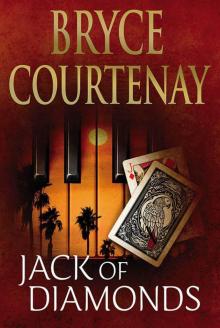 Jack of Diamonds
Jack of Diamonds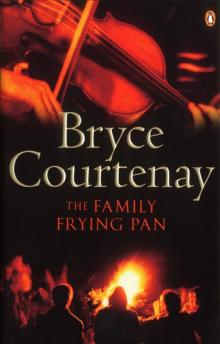 The Family Frying Pan
The Family Frying Pan April Fool's Day
April Fool's Day Smoky Joe's Cafe
Smoky Joe's Cafe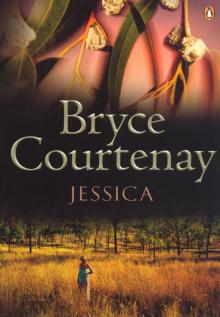 Jessica
Jessica Matthew Flinders' Cat
Matthew Flinders' Cat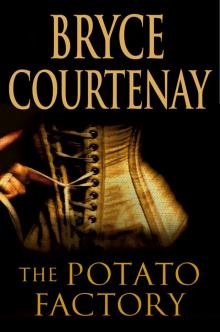 Potato Factory
Potato Factory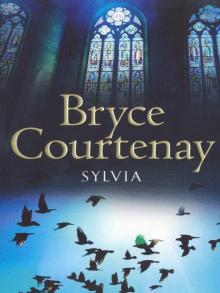 Sylvia
Sylvia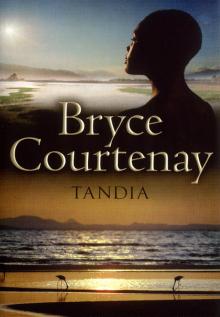 Tandia
Tandia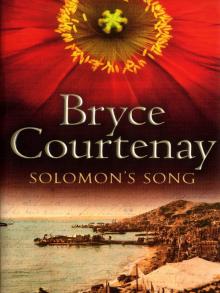 Solomon's Song
Solomon's Song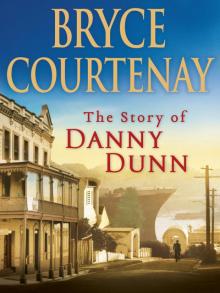 The Story of Danny Dunn
The Story of Danny Dunn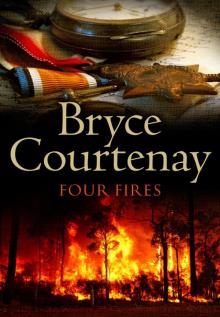 Four Fires
Four Fires Whitethorn
Whitethorn Tommo and Hawk
Tommo and Hawk The Silver Moon
The Silver Moon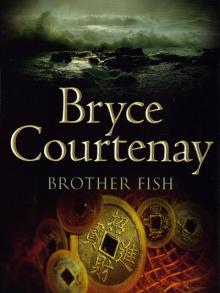 Brother Fish
Brother Fish FORTUNE COOKIE
FORTUNE COOKIE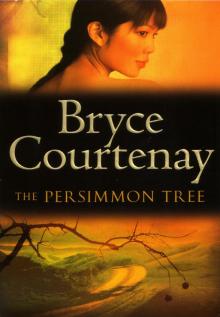 The Persimmon Tree
The Persimmon Tree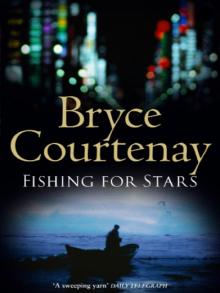 Fishing for Stars
Fishing for Stars